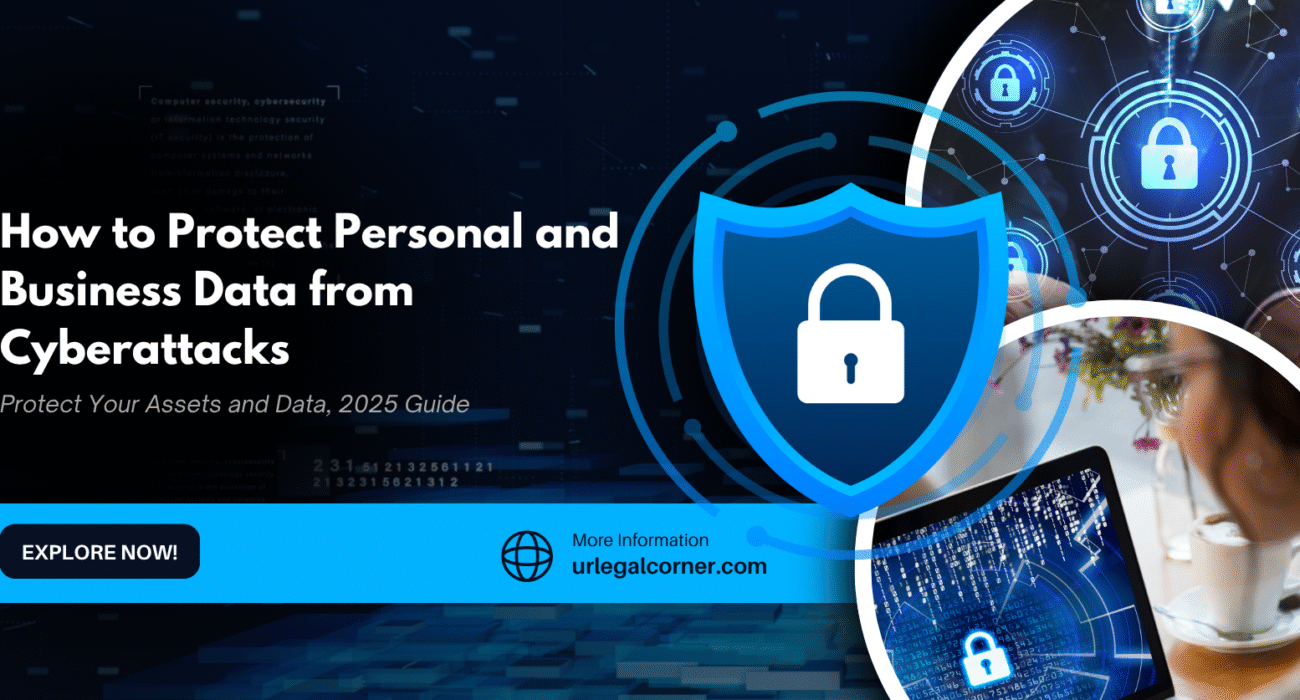🔐 Introduction
In today’s interconnected world, data is one of the most valuable assets, both for individuals and businesses. From personal banking details to business contracts and customer databases, everything lives online. And with this convenience comes a growing threat: cyberattacks.
Cybercriminals are no longer just targeting large corporations, small businesses, freelancers, and everyday users are equally at risk. Whether you’re running a business or simply using digital platforms for personal tasks, protecting your data is no longer optional — it’s essential.
⚠ Why You Should Care About Cybersecurity
Here’s what’s at stake if you don’t take data protection seriously:
1. Identity theft
2. Financial fraud and loss
3. Reputation damage
4. Legal consequences due to data breaches
5. Operational disruption for businesses
A single weak password, outdated software, or unsecured network can expose everything.
🛡 Top Ways to Protect Personal & Business Data from Cyber Threats
1. Use Strong, Unique Passwords
Reusing the same password across platforms is risky. A data leak from one site can compromise all your accounts.
2. Enable Two-Factor Authentication (2FA)
Adding a second layer of verification (like OTPs or authentication apps) significantly reduces the risk of unauthorized access.
✅ Use it on: Email, banking apps, social media, and cloud storage accounts.
3. Regularly Update Software and Devices
Outdated software can have vulnerabilities that hackers exploit. Always install updates — they’re not just about new features, but critical security patches.
✅ Don’t ignore system or app update notifications.
4. Be Cautious with Public Wi-Fi
Public Wi-Fi networks are breeding grounds for cyberattacks.
✅ Avoid accessing sensitive data (like banking) on public networks.
✅ Use a VPN (Virtual Private Network) for safe browsing.
5. Encrypt Your Data
Encryption protects your files and communications from being read even if they are intercepted.
✅ Use tools like BitLocker (Windows), FileVault (Mac), or encrypted cloud storage.
6. Install Reliable Security Software
Antivirus, anti-malware, and firewall software provide the first line of defense against threats.
✅ Businesses should consider enterprise-level endpoint protection.
7. Regular Backups
Data can be lost due to ransomware, hardware failure, or accidental deletion.
✅ Back up important files weekly or daily, preferably to both a physical drive and cloud storage.
8. Train Employees and Teams (For Businesses)
Many cyberattacks happen due to human error. Even a single unaware employee can click on a phishing link.
✅ Conduct regular training on spotting suspicious emails, securing passwords, and following data handling protocols.
9. Implement Role-Based Access Controls
Not every employee needs access to all company data.
✅ Restrict access based on roles and monitor user activity.
✅ Revoke access immediately when an employee leaves.
10. Secure Business Websites
Websites with weak security can be hacked to steal customer data or spread malware.
🚨 What to Do If You Face a Cyberattack
If you suspect your data has been compromised:
1. Disconnect affected systems from the internet
2. Change all passwords
3. Notify your bank or service provider immediately
4. Inform your clients (for business data)
5. Report to the Indian Cyber Crime Portal or your local cyber cell
🧠 Final Thoughts
Cybersecurity isn’t just an IT issue, it’s a life skill in the digital age. Protecting your personal and business data helps ensure trust, continuity, and peace of mind.
Start with the basics: strong passwords, regular backups, and employee awareness. And if you’re running a business, consider consulting cybersecurity professionals to build a robust framework.

